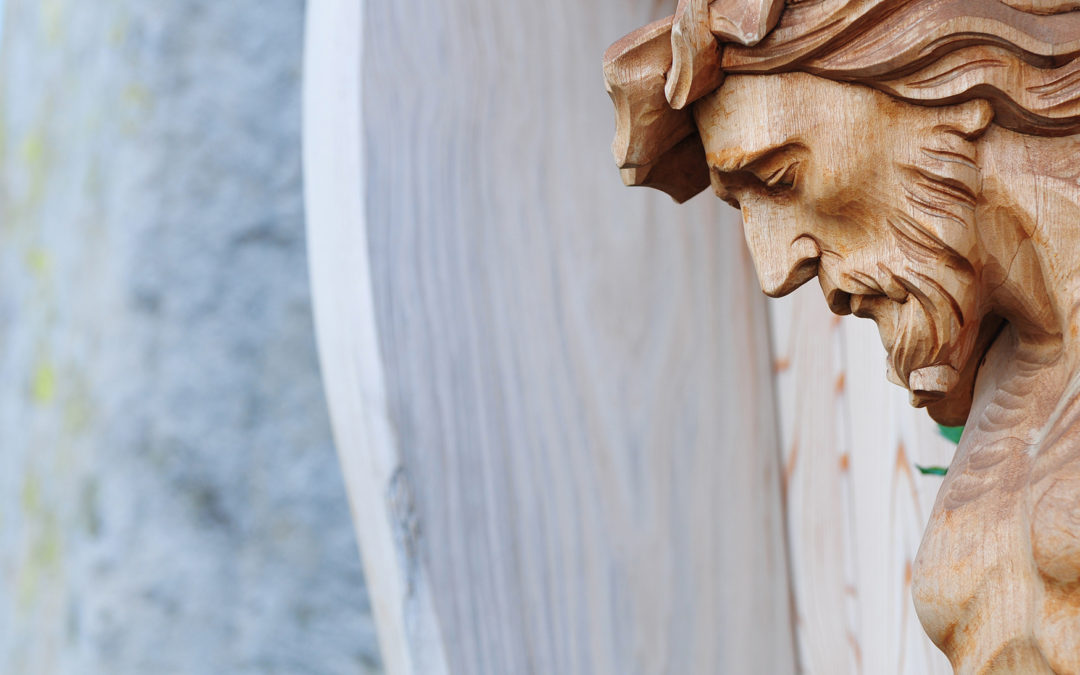Jesus Christ is holy. I am not. Jesus Christ is pure. I am not. Jesus Christ is good. I am not. Jesus Christ is sinless. I am not. Jesus Christ is righteous. I am not. Jesus Christ is the sacrifice accepted by God for the sins of the world. I am not (not even for my own).
But as those who have trusted in Jesus Christ, we know that the contrast between who he is and who we are makes the Good News that much sweeter. We have been clothed in Christ! His holiness, purity, goodness, sinlessness, righteousness and acceptability to God are now ours! There is no better news than that.
So how can we, in any way, rely upon ourselves for our own salvation or think we could somehow contribute to it? Look at who we are without Jesus Christ! And yet, even we Christians often fail to recognize our own unrighteousness. Why is that? When we see self-righteousness in others, it is easy to identify and condemn. But what about in ourselves?
We think of the basic sin of Adam and Eve as the sin of unbelief. Adam and Eve refused to believe what God said… about themselves. They didn’t believe that it was necessary to trust God in order to continue in their state of perfection. They believed they could disobey what God said and become just like him! Doesn’t that sound like self-righteousness? Perhaps self-righteousness is just the flip side of the coin of unbelief. We are born with an inability to believe and trust in God and an overwhelming desire to trust in our own “righteousness.”
Could it be that self-righteousness is so inextricably woven into the fabric of who I am as a human being that it tends to permeate everything I say, do and think? Perhaps it doesn’t always rise to a level that can be readily spotted by others, but does self-righteousness raise its serpent head within me in ways that I can disguise?
I think perhaps it is self-righteousness that causes me to sometimes think that God accepts me because of my “good deeds” for him. And yet my acceptance by God is based upon Jesus Christ’s perfect goodness and righteousness.
I think perhaps it is self-righteousness that causes me to sometimes think that if I “do more” for God, go the extra mile, that he will love me a little more. And yet God already loves me perfectly in Christ.
I think perhaps it is self-righteousness that causes me to sometimes think that the “success” of God’s ministry depends upon me rather than his Word and Spirit. And yet, God says that his Word will accomplish all that he intends.
Of course, the common thread of self-righteousness running through these situations is my default thinking that God’s relationship to me depends upon who I think I am (rather than who Scripture says I am in Christ). If I receive some measure of comfort from that concept, it is again because of my own… you guessed it… self-righteousness. Unfortunately, we are all infected with the disease of unbelief/self-righteousness.
I thank God that his love for me transcends all my sin, including my self-righteousness, based upon the absolutely perfect life and sacrificial death of the only One who was ever truly righteous in himself—Jesus Christ!
“…he saved us, not because of righteous things we had done, but because of his mercy. He saved us through the washing of rebirth and renewal by the Holy Spirit” (Titus 3:5).
It is through Christ’s righteousness that I am able to do good things for others to bring glory to God. May we live in that righteousness, won for us by the blood of Christ, and allow him to live his life through us in service to a world that is desperately seeking to save itself.
Please consider giving to the ministry of the CLB so that many more will be saved from the destruction of self-righteousness and unbelief.
Roy Heggland is Associate for Biblical Stewardship for the Church of the Lutheran Brethren.

